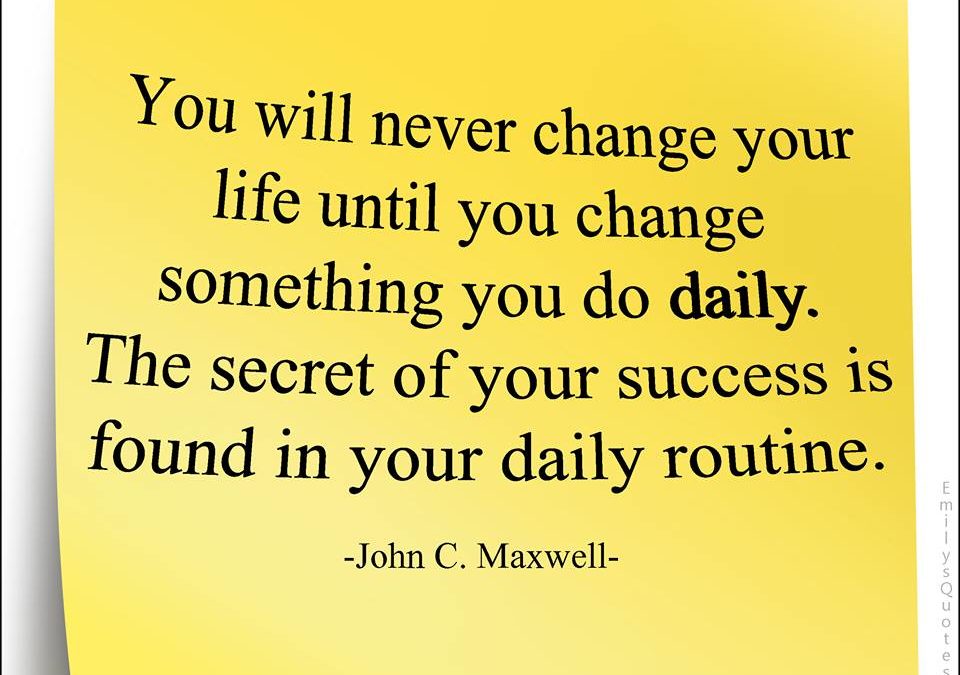Podcast: Play in new window | Download (Duration: 18:05 — 16.6MB) | Embed
As we begin a New Year – New You dialogue, we are going to examine what it means to have the right Culture for your team. Culture is a visualization of what we value as a team, so people can see what you personally value. There is no confusion – absolute clarity is achieved.
There is a crucial question that must be asked; “Why do you want to be a leader?” There truly is only one answer – Add value to people! What? Did you really think it is about the perks and privileges? This New Year – New You dialogue is about re-examining the true essence of being a leader.
There are 4 insights that I will give you in this podcast on how to add value to your team members. First, I want you to ponder the quote by Stan Belyshev; “How many people will be better off because of who your are and what value you can add to their life?” Adding value to your team is actually a compounding work. Your effort to add value compounds through your team to other people that you will never meet. “Multiplied Value” is the image to grasp!
I go back to my opening question, Why do you want to be a leader? Leadership done correctly, compounds and multiplies like no other work. Leadership legacy is not about brick and mortar, rather, it is about helping people obtain the dreams and goals within themselves while partnering with you in a vision that is too big to obtain by yourself.
We can only value people to the degree that we value ourselves.
- We see people not as they are, burt as we are. The cardinal sin of modern day leadership is to not value the people they are serving.
- Intentionally love people, Intentionally believe in people’s potential, and Intentionally show unconditional love for your team. Practicing this daily will increase your desire to connect with your team rather than correct your team.
- Perhaps you need to establish a bedrock truth for your team – There is NO ROOM on this team if you do not love people!” When you stop loving people, you risk manipulating people.
You must make yourself more valuable
- When was the last time you learned something new for the first time?
- Adding value to your team members requires that you get better. You cannot give what you do not have.
- What is your “Growth Plan” for this year? What I know by experience is, if you cannot articulate it in writing you are only daydreaming. The old adage is true – If you do not know where you are going, any road will take you there.
- You have to keep growing, learning, and developing. You must drink deeply in order to give out abundantly!
Know and relate to what other people value.
- Learn to walk slowly through the crowd. Listen carefully as you talk to people – you will learn what is on people’s hearts, struggles, dreams, and passions.
- One of the great challenges of leadership is to learn to take your cues from the people you are leading.
- Care enough to actively listen to them.
- Passive listening allows for distractions and interruptions.
- You are never really focused on the person in front of you.
- Your personal significance gets in the way of effective communication.
- The biblical passage of Matthew 22:36-40 comes to mind.
- The greatest thing that God values is “Loving Him heart, soul, and mind.”
- The next greatest thing that God values is to love people in the same way that you love yourself.
Intentional Living Mastermind Learning Group
LINKS
Shepherds Advantage Leadership Podcast is now on iTunes – SUBSCRIBE
Shepherds Advantage Leadership Podcast is now on Stitcher – SUBSCRIBE
FREE GIFT – “The Art of Balancing Candor With Care” – Click on the icon at the bottom of the page
Executive Coaching Service– Private message me for details on this customizable serviceMusic: “8th Anniversary by Diamond Ortiz
Do the things that God values.



